Sammy rubs up against my leg, purring, and then gallops to his food bowl, plunging his black, furry face into a morass of clay-colored mush. Curious and outgoing, Sammy is a lot like other house cats, except for one important detail: Sammy is a vegan.
His owner, Chrissy Benson, an attorney and life coach living in Manhattan’s East Village, shows off various powdery supplements in white plastic containers that she uses to balance Sammy’s special diet. She sits opposite me, friendly, cross-legged, and beaming an aggressively healthy vibe, as she explains her cat’s gradual journey to a life free of animal products.
“I felt really uncomfortable giving Sammy animal-based cat food because we have this clear double standard in our society,” Benson tells me. She says that while “there are certain animals that we consider part of our moral circle, like cats and dogs,” there are others, like pigs and chickens, that we unjustly give no such consideration.
“Morally speaking,” she asks, “how could I justify other animals being harmed just because I have an animal I have a special fondness for? But he was my family now, I had a responsibility towards him, and at first [I thought] meat was what he needed, so I felt obligated to give him that.”
After doing some research, a little more than four years ago Benson began slowly transitioning Sammy to a fully vegan menu. She says he took to it like a champ, and has been living it up on a vegan diet ever since. “His coat was so shiny, he had so much more energy. So that was a great surprise,” Benson tells me.
By nature, cats are “obligate carnivores,” having evolved to optimally process the potent kick of raw animal protein. And as anyone who’s lived with a feline can tell you, even in the most sterile of condos, with nary a rodent to be found, the predatory instinct that makes these animals such efficient hunters remains on display in the way they prowl, play, and stalk. (Though, admittedly, in some cases that jungle instinct may be sublimated by the comforts of tummy rubs and catnip toys.) Benson says that even gentle Sammy once lapsed in his plant-based regimen, catching a mouse and devouring everything except for the head. She wrinkles her nose in distaste as she recounts the dismemberment, but maybe also seems a little proud. Cats will be cats, I guess.
Anecdotally, it’s hard to tell if it’s possible for cats to thrive on a completely plant-based diet. But most veterinarians and animal experts strongly discourage vegan cat diets, with many even condemning the notion as dangerous or fundamentally ridiculous. While many cats will occasionally gnaw on a vegetable here or there—chewing grass and other greens is a normal part of a cat’s digestive life—they certainly don’t seem to seek out plants to eat most of the time, and vegetables alone can’t account for their particular nutritional needs.
“If you really want a vegetarian pet, you can adopt a rabbit, get a goat, consider horses, or buy a guinea pig,” Dr. Patty Khuly writes on the pet health site PetMD. “There is no need to inflict a biologically stressful condition on another species just because you happen to feel inclined towards such a diet for yourself.” An article on RealClearScience warns, “Cats can go blind and die if forced onto a vegetarian diet,” and in May, a Wonkette headline told pet owners using vegan cat food, “You Are an Idiot Who Is Killing Your Cat.” When The Dodo queried Elizabeth Colleran, former president of the American Association of Feline Practitioners, on whether cats could be fed a vegetarian diet, she gave them a terse, one-word answer: “No.”
Of course, when one brings up the idea of vegan cat food to most people, the reactions range from laughter to outright rage. “Poor cats!” one colleague exclaims when I mention this story. To feline fanciers who remain skeptical about the feasibility of a vegan cat diet, the practice can seem downright cruel, the narcissistic affectation of arrogant post-scarcity lifestylists. “Animal abuse!!!!!” and “CATS NEED MEAT TO LIVE!” read two protest reviews on the Amazon page for Ami Cat brand vegan chow.
“It’s kind of funny, because sometimes you get … well, to me, a surprising amount of pushback from vegans about cats being vegans,” admits Benson. (Another Ami Cat review: “I firmly believe that putting your cat on this food will cause great suffering for you and your pet, which is what we are trying to prevent by being vegan.”)
Yet, despite the chorus of voices warning about the potential risks, there are a number of vegan cat food brands on the market that claim to meet feline nutritional needs. More important, people are feeding them to their cats. There are numerous guides available on how to make the switch. Even many vets who are vehemently opposed to the practice admit that a plant-based diet is possible for cats (though they warn that it is not natural, medically unknown territory, and likely to be nutritionally insufficient). In fact, a small but determined group of veterinarians has actually been willing to stand behind these unconventional meatless regimens, claiming that though the science is not yet settled, they have a growing body of research and empirical evidence on their side.
I had originally met Chrissy Benson through her friend Dr. Lorelei Wakefield, a veterinarian and the operator of Veterinary Concierge Care, a visiting pet care service in New York City. Wakefield also has the distinction of being an author of the only peer-reviewed study out there on the health-related effects of plant-based diets for feline pets. In the 2006 article “Evaluation of cats fed vegetarian diets and attitudes of their caregivers,” published in the Journal of the American Veterinary Medical Association, Dr. Wakefield and her peers monitored 34 cats on a managed vegan diet to see if they received enough of two essential nutrients, cobalamin and taurine. Though some cats’ nutrient levels were marginally suboptimal, none of them turned out to be technically deficient. Wakefield says she now treats several vegan cats, along with a few that subsist on some combination of meat and plant-based foods.
I ask her, “So what happens? People come to you and say, ‘I want to make my cat a vegan’?”
“People come to me specifically because there aren’t a lot of vets who’ve worked in this area, and having done a study, I’m always keeping on top of the latest research,” she says. “Also they know I’m not going to tell them they’re crazy, horrible people. I understand the ethical point of view and I just want to make it as safe for their cat as possible if that’s what they choose to do.”
She tells me, “I warn people: ‘We don’t know that much about vegan diets for cats right now, it’s a new thing.’” Despite her cautious outlook, the veterinarian seems to be a true believer in the possibility of raising cats exclusively on plant-based foods. She says that in her experience, cats are “definitely no less happy and maybe more happy on a vegan diet.”
Wakefield explains that commercial vegetarian cat foods try to balance feline needs using a mishmash of protein-rich vegetables, seeds, nuts, and nutritional add-ins. Though cats depend on meat for a number of dietary components, taurine—one of the nutrients tested for in Wakefield’s study—is an element of particular concern. The amino acid is abundant in animal flesh and rare in plants.
Recognizable to anyone who’s scanned the list of ingredients on energy drinks like Red Bull and Monster, extra taurine is said to boost athletic and mental prowess in humans (although this remains unproven). Over the ages, a steady diet of meaty, creepy, crawly things provided cats with the taurine they needed, and their bodies, expecting the stuff regularly from food intake, evolved to no longer produce it. Because of this, cats must consume it on a consistent basis, and those that develop a deficiency can suffer from a number of nasty ailments, like growth complications, heart problems, and blindness.
Taurine deficiency has been “a scare with the vegetarian cats,” says Wakefield. But a synthetic version of the amino acid is added to vegan cat food, and Wakefield says she tests her vegan cat patients’ blood regularly and hasn’t found deficiencies. (She also recommends that cats on a vegan diet take a multivitamin—likely to contain taurine—and visit the vet twice a year instead of once.)
She tells me about a conference of veterinary nutritionists, at which she presented the findings from her 2006 study. “I thought people were going to get mad at me, and instead, a number of nutritionists came over to me and said, ‘Of course the blood levels [of tested vegan cats] are fine, you supplemented. We’re not surprised.’ So why do people think this is such a horrible thing?”
Wakefield seems to truly care about her animal charges and is knowledgeable, even somewhat convincing, considering how outlandish the idea of vegan cats had seemed to me at the outset. But supposing it is technically possible to feed cats a managed plant-based diet—why try to fit the square peg of vegan ethics into the round hole of feline nutrition anyway? Why even have a cat?
While the animal rights community has long been divided over the fundamental idea of pet ownership, it’s not hard to imagine an overlap between those who love spending time with animals and those who don’t eat animals. And (God love ’em) cats just keep making kittens; they’re out there, they need homes, and for many people, they possess a furry charm that can outweigh practicality or principle. It’s a strange place to find oneself, ethically—and I could see how it would feel like a horrible form of capitulation for vegans, by dint of their desire to care for one creature, to be forced to hurt others.
I couldn’t stop thinking about Benson’s point, which she made repeatedly throughout our interview, that our double standard for farm animals and pets makes no sense. Whether you eat meat or not, it can be head-splitting to sort out the tangled weirdness of our societal attitudes toward animals—how does one parse the subtle ethical negotiations that allow us to simultaneously keep pets, consume flesh, and build industry and culture around other living things? We abide in a world where pet strollers and purse dogs live alongside KFC Double Downs and other animal products disguised and processed into exotic, almost unrecognizable nuggets, loaves, and mousses. To acknowledge and counter the dissonance behind this paradigm seems eminently sane, even necessary. Extending such measures to the lives of pets through phenomena like vegan cat food, though, can seem like a bizarre stretch—a kind of misguided feline Munchausen by proxy, treating cats for some disease of civilization they are not capable of having.
No matter how reasonable or pressing one’s personal ethical concerns, as a society we have accepted a standard of cautious preservation for those lives entrusted to our care, accepted into our homes, and embraced as companions or family members. Even in desperate, potentially lifesaving cases, use of experimental medical treatments is controversial. Despite sincere and deep-rooted beliefs, religious groups face continual trouble in refusing medical treatment for themselves and their children. We are expected to inoculate our indoor pets against diseases like rabies, even if the animal may never leave the house, because that is the best practice and a prophylactic measure in case of unexpected mishap. Once we create a dependence, we are expected to maintain it with dignity, love, and a deference to the duties of conservation.
This standard is why, to many of those who reject the notion of vegan cat diets, the idea can seem like such a betrayal, a perversion of the very ideas that would drive someone to make ethical consumption choices in the first place. This is also why, despite what might be a plausible basis for one day feeding a (well-tested) nonmeat pet food to cats, most vets reject the notion out of hand—there will always be a gap between what is possible and what most medical professionals can recommend in good conscience. Pet owners who currently feed these diets to their cats are, at best, walking a line, betting on a marginal set of wisdoms cobbled together empirically and without established precedent. And through their choices, they are taking chances with the health and happiness of the pets they love.
I don’t want to judge, but I feel relieved when Benson tells me that if she noticed any health problems, she’d reluctantly take a vet’s recommendation to put Sammy back on the meat. “I don’t really trust doctors and vets that much,” she tells me. But “if he was having some sort of issue, then fair enough.”
Sammy crawls onto the keyboard of my laptop, stopping the audio recording of the interview. He hunches down his broad shoulders, and we stare at each other for a minute. He seems fine, but what do I know? I still can’t help but worry. I tousle his head fur and maintain eye contact as he purrs.
I ask him: “You OK, buddy?”









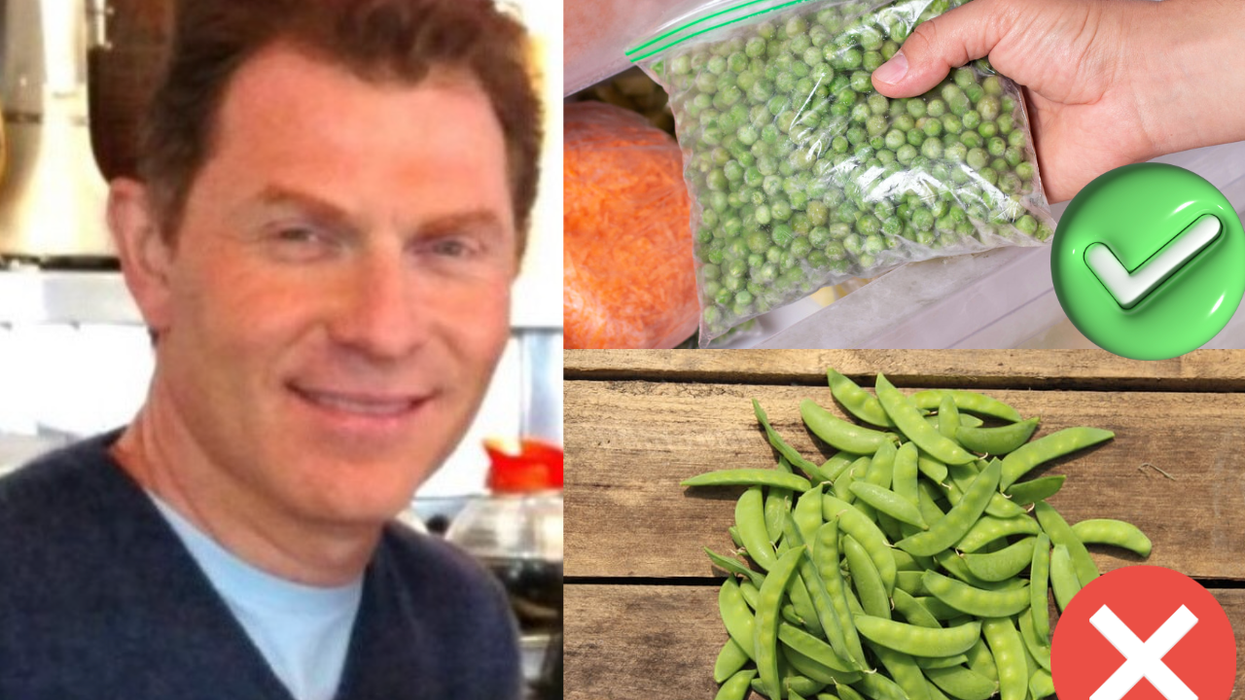



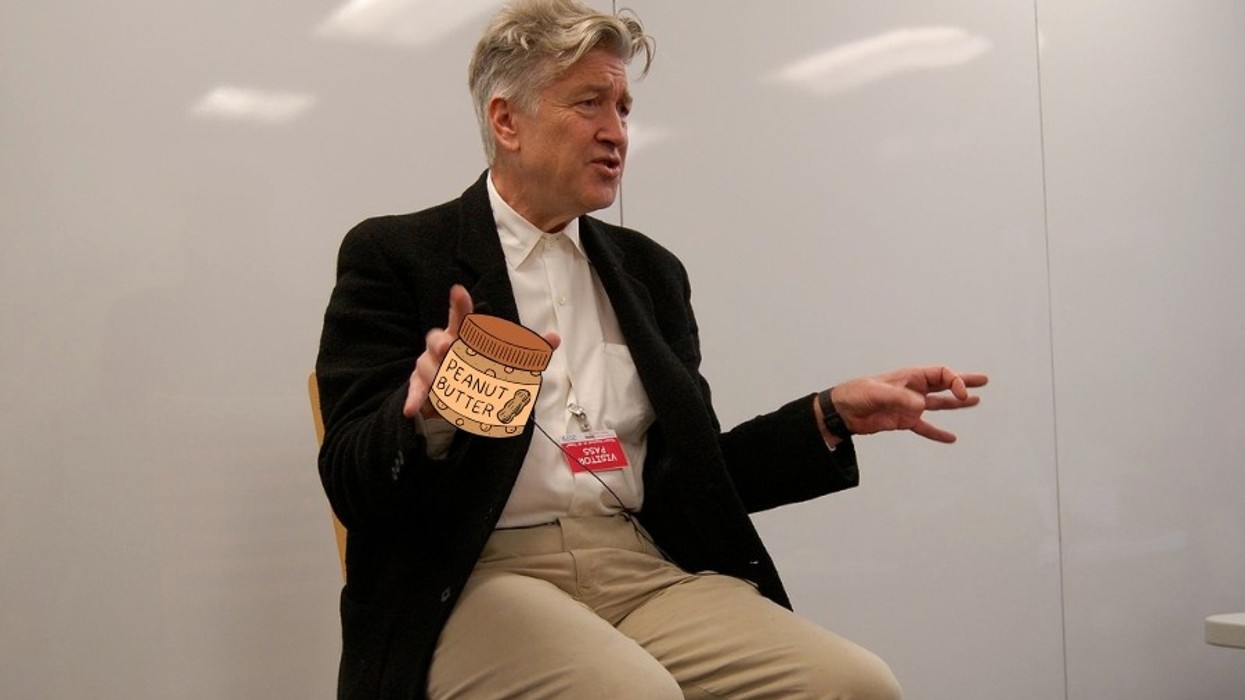


 Parents of young children get more time with them if they work from home.Photo credit: Canva
Parents of young children get more time with them if they work from home.Photo credit: Canva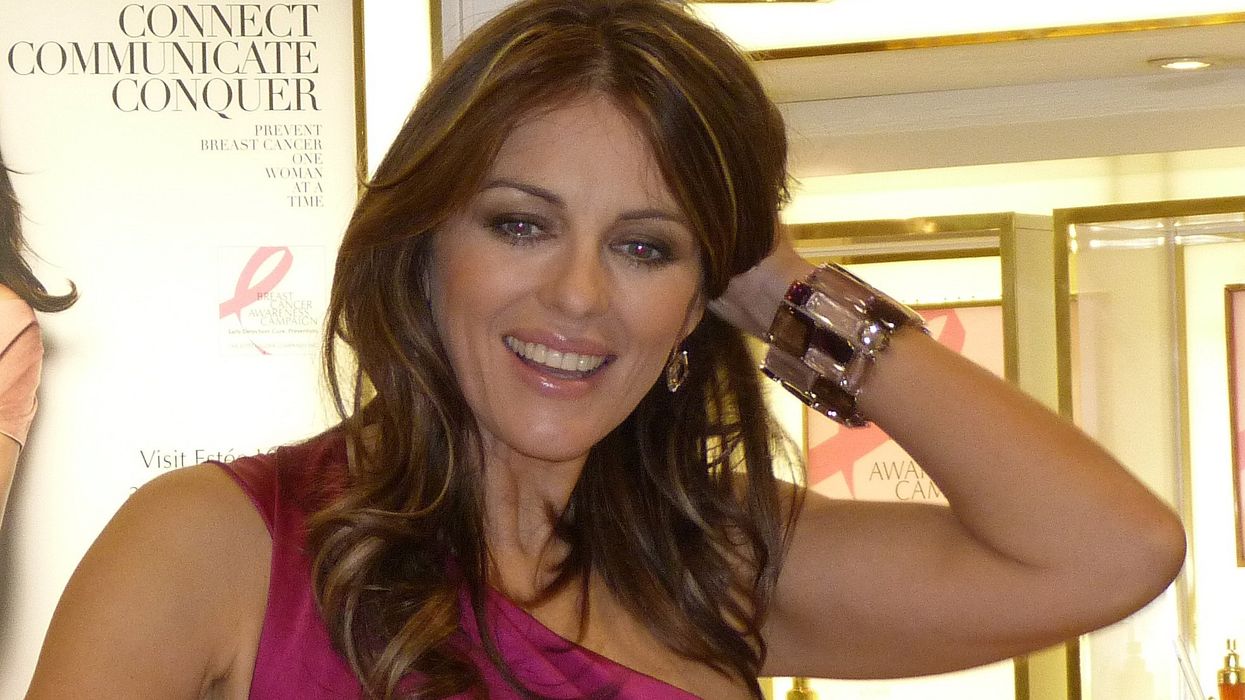
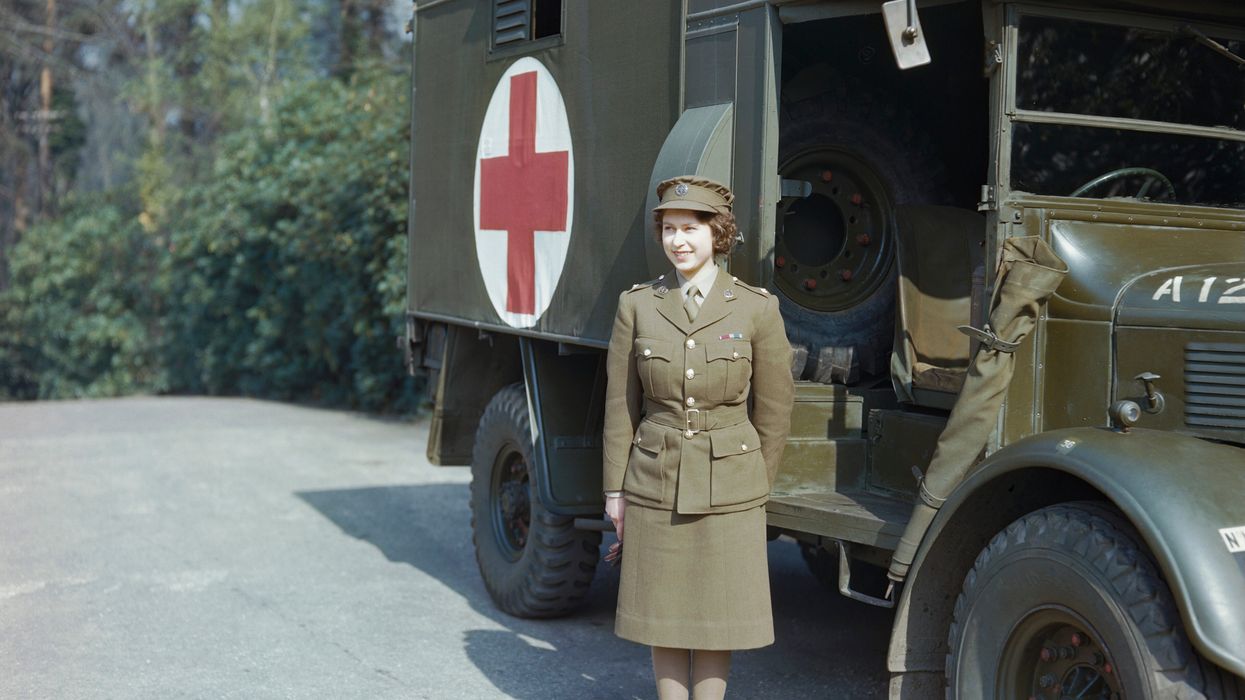



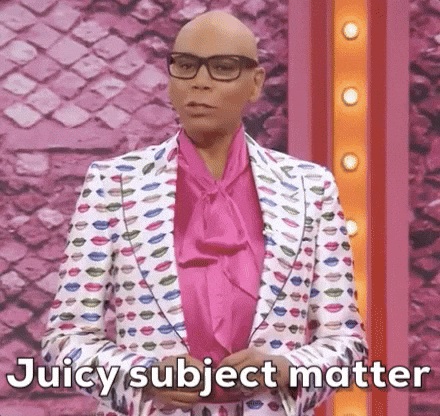 Juicy subject matter
Juicy subject matter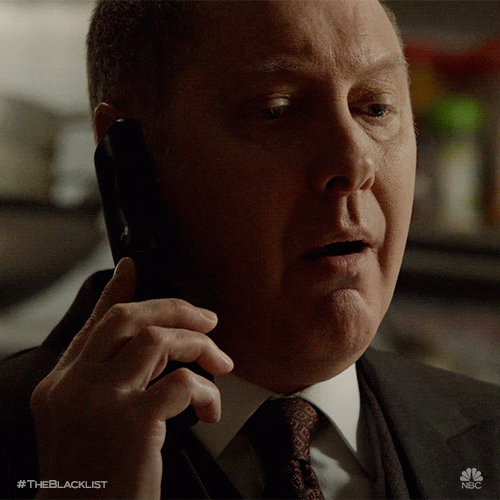 Giphy from The Blacklist.
Giphy from The Blacklist.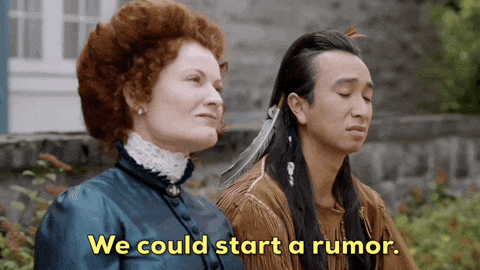 We could start a rumor.
We could start a rumor.
Grieving couple comforting each other
This response to someone grieving a friend might be the best internet comment ever
When someone is hit with the sudden loss of a friend or loved one, words rarely feel like enough. Yet, more than a decade ago, a wise Redditor named GSnow shared thoughts so profound they still bring comfort to grieving hearts today.
Originally posted around 2011, the now-famous reply was rediscovered when Upvoted, an official Reddit publication, featured it again to remind everyone of its enduring truth. It began as a simple plea for help: “My friend just died. I don't know what to do.”
What followed was a piece of writing that many consider one of the internet’s best comments of all time. It remains shared across social media, grief forums, and personal messages to this day because its honesty and metaphor speak to the raw reality of loss and the slow, irregular path toward healing.
Below is GSnow’s full reply, unchanged, in all its gentle, wave-crashing beauty:
Why this advice still matters
Mental health professionals and grief counselors often describe bereavement in stages or phases, but GSnow’s “wave theory” gives an image more relatable for many. Rather than a linear process, grief surges and retreats—sometimes triggered by a song, a place, or a simple morning cup of coffee.
In recent years, this metaphor has found renewed relevance. Communities on Reddit, TikTok, and grief support groups frequently reshare it to help explain the unpredictable nature of mourning.
Many readers say this analogy helps them feel less alone, giving them permission to ride each wave of grief rather than fight it.
Finding comfort in shared wisdom
Since this comment first surfaced, countless people have posted their own stories underneath it, thanking GSnow and passing the words to others facing fresh heartbreak. It’s proof that sometimes, the internet can feel like a global support group—strangers linked by shared loss and hope.
For those searching for more support today, organizations like The Dougy Center, GriefShare, and local bereavement groups offer compassionate resources. If you or someone you know is struggling with intense grief, please reach out to mental health professionals who can help navigate these deep waters.
When grief comes crashing like the ocean, remember these words—and hang on. There is life between the waves.
This article originally appeared four years ago.